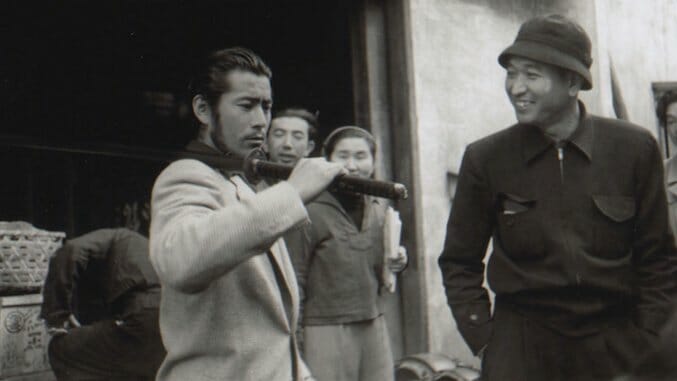Mifune: The Last Samurai

Perhaps the most illuminating passage of Mifune: The Last Samurai—Steven Okazaki’s documentary about legendary Japanese actor Toshiro Mifune—comes early in the film, in the form of a brief history of early Japanese cinema, especially the 1920s. Samurai films had become especially popular among young people, drawn to its nostalgic look at codes of honor in an older time in the wake of World War I and its devastation. With its inclusion of rare footage from some of these films and Keanu Reeves’s soft-spoken recitation of Okazaki and Stuart Galbraith IV’s narration in voiceover, this sequence puts us in the frame of mind not just of a standard talking-heads documentary, but also of a piece of video criticism of the type that film critics like Kevin B. Lee and Matt Zoller Seitz have been pioneering in the past decade-plus. It instills hope that Okazaki’s film will have something genuinely revelatory to offer on the much-discussed subject of Mifune, particularly regarding the 16 films he made with Akira Kurosawa, the filmmaker who brought him to prominence on the world cinema stage.
-

-

-

-

-

-

-

-

-

-

-

-

-

-

-

-

-

-

-

-

-

-

-

-

-

-

-

-

-

-

-

-

-

-

-

-

-

-

-

-








































